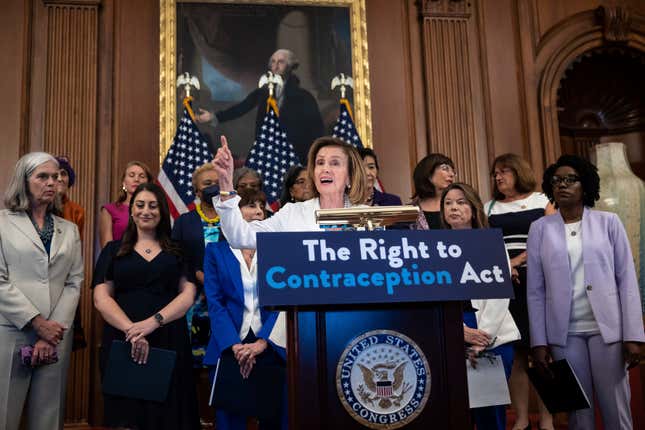
On Thursday, the Right to Contraception Act — which codifies the right to birth control and other contraceptives—was passed by the House. The bill comes on the heels of the Supreme Court overturning Roe v. Wade’s protection of abortion access last month.
The bill was able to pass even though 195 Republicans voted against it, with a final vote of 228 to 195. Republicans who opted to vote against the legislation included Reps. Paul Gosar (Ariz.), Matt Gaetz (Fla.), Jack Bergman (Mich.) and Joe Wilson (S.C.). Only eight Republicans voted in favor of the bill.
The Senate advocated for an additional measure that will probably see a vote next week. Even though the House is working hard to preserve reproductive rights, these health care rights bills will most likely die by filibuster in the Senate.
The Right to Contraception Act was introduced by Rep. Kathy Manning (D-N.C.) and codifies the right to birth control into federal law by creating a statutory right for people to get and use contraceptives. It also codifies protections for physicians who provide their patients with contraceptives.
In addition, the bill protects various contraceptives approved by the Food and Drug Administration and defines contraception as an: “action taken to prevent pregnancy, including the use of contraceptives or fertility-awareness based methods, and sterilization procedures.”
The Right to Contraception Act allows the Department of Justice to take civil action against any federal or state official who tries to restrict birth control access. It permits those affected to also take legal action against anyone who attempts to enforce any kinds of limitation on contraception.
House Speaker Nancy Pelosi (D-Calif.) remarked at a Wednesday press conference before the vote:
“Let us be clear: We are not going back ― for our daughters, for our granddaughters.”

